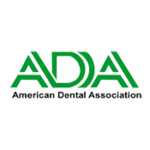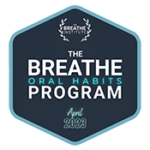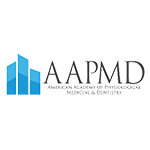If you or your child have suffered from occasional pain in your jaw joints, such as tightening or a sore sensation when you talk or chew, you are not alone! At some point, everyone experiences some pain in their jaw, because it is the most constantly used joint in the body!

What is TMJ?
The Temporomandibular (TMJ) joint is the primary joint in your face that allows you to talk, chew, and open wide for the dentist. It’s hard to miss, it is the joint connecting your jaw to your skull. To feel these joints in action, simply place your fingers in front of your ear and open your mouth. What you feel is the rounded end (the joint) of the lower jaw roll along the the joint socket of the temporal bone connected to the skull. The temporal bone also contains the inner ear and the temple, which is why you can feel your ears “pop” sometimes when you open your mouth.
On average, people speak thousands of words a day, each one requiring movement of this joint. Thankfully, we don’t need WD-40 like a squeaky door when its had a lot of use. We do, however, get sore and over exerted muscles that make communication or family dinner a painful task. Oftentimes, the symptoms will reside in a few days with a little relaxing of the muscles. Other times, people can develop more intense, ongoing pain. This is referred to as Temporomandibular joint dysfunction (TMD) or a TMJ disorder and requires some corrective treatment.
How Can I Get TMJ?
TMJ doesn’t have any known direct causes but, rather contributing causes. Strain of the soft disc between the joint and socket can cause wear or displacement of the joint, often leading to TMJ disorders. Grinding and clenching of the teeth can cause misalignment of your bite and wear on the muscles used for chewing. Many people are unaware that they clench or grind their teeth, whether it is a coping mechanism for stress or a sleep habit.
With that being said, stress is a common cause for TMJ disorders since people tend to tighten the muscles or grind their teeth when they undergo physical and mental stress alike.
Dental problems, such as poor teeth alignment, arthritis, muscle problems, a malformed TMJ, or injury/trauma, can also contribute to TMJ disorders.
Do I have TMJ?
The symptoms associated with TMJ are often severe and pronounced, since this condition affects a significant part of daily functions such as talking and eating. Some of these symptoms include:
- Pain in the jaw joint, face, and even through the neck and shoulders
- Limited ability to open the mouth very wide, like a stiff hinge
- Jaws that get “stuck” or “lock” in the open- or closed-mouth position
- Clicking, popping, or grating sounds in the jaw joint when opening, closing, or chewing (which may or may not be painful)
- Exhausted feeling in the face, muscle fatigue
- Difficulty chewing or a sudden uncomfortable bite – as if the the teeth are not aligning
- Heat and/or swelling in the joint area
Other symptoms that may be a result of TMJ disorders include headaches, dizziness, tooth aches, numbness, earaches, neck pain, or ringing in the ears. If these are symptoms either you or your child experience, talk to your dentist about how they can be corrected.
What Can I Do About It?
First things first, Let your dentist know; the sooner TMJ problems are addressed, the better. If you suspect you or your child may have a TMJ disorder, your dentist will do an exam and may order imaging, such as x-rays or an MRI, to look at the joint and confirm the condition.
If symptoms are moderate or occasional, treatment may not be needed and it could be a matter of resting the jaw muscles for a couple days. You may wonder how its possible to “rest” the most commonly used joint in your body! Focus on maintaining a relaxed state, try not to clench or grind your teeth and massage the joint area as long as there is no swelling. Here are some tips to go about treatment for TMJ disorders:
- Ask your dentist about exercises and relaxation techniques you can do to relive tension, practice them as instructed.
- Application of ice packs or heat may help relieve discomfort.
- For pain and swelling, try taking nonsteroidal anti-inflammatory drugs (NSAIDs), such as naproxen or ibuprofen (Advil, Motrin, Aleve). Your dentist can prescribe a higher dose if needed.
- Eat foods that are soft, avoid those that may aggravate the TM joint (steak, apples, taffy, etc).
- For clenchers and grinders, muscle relaxants can greatly help, but are available by prescription only.
- Use a night guard to prevent clenching and grinding at night.
- Restrain from opening your mouth too wide, forcing the joint to pop, and excessive chewing motions such as chewing gum.
- Talk to your dentist about corrective dentistry. This includes braces, dental crowns, or bridges to properly align and balance the biting surfaces of your teeth.
- Keep your teeth slightly apart in order to relieve tension on the TM joint.
In sever cases of TMJ disorders, surgery or invasive techniques may be required if common corrective dentistry is not enough. Most always, TMJ disorders can be corrected by your dentist and most kids don’t need surgery.
To Put Things In Place
Many people, particularly children and young adults, develop TMJ disorders or occasional joint pain due to unconscious habits of grinding and clenching. You can control these habits or help your children by making them aware of the habit and instruct them on how to stop. Teach children to recognize when they practice this bad habit (at school during a test, when angry or upset, etc.) so they can consciously put an end to it. Ask your dentist for tips on how to nip this habit in the bud and if any corrective dentistry work is needed. Braces have often been the hero for those who struggle with persistent TMJ pain by greatly reducing or even eliminating the problem all together! No one should live feeling like they got a punch in the face, talk to your dentist about putting things back in place.










